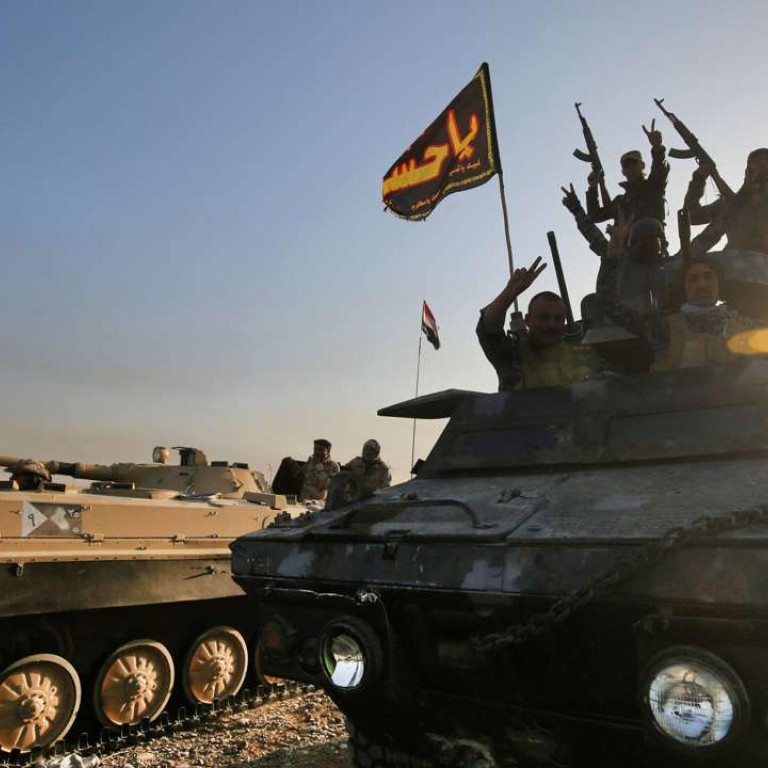
In battle to liberate Mosul, there is a risk of jihadis returning home
Governments in Asia need to remain vigilant in their efforts to prevent violent tragedies like those that have terrorised Europe
The US-led invasion of Iraq plunged the country and the region into an endless cycle of violent turmoil and despair. When it seemed it could not get any worse, Islamic State jihadism nurtured during the American occupation unleashed a reign of unprecedented brutality and savagery, leading to the declaration of a caliphate from the Sunni city of Mosul in northern Iraq in 2014. The newly launched offensive to retake Mosul is Iraq’s toughest battle since American troops left five years ago.
Iraq’s future could depend on the outcome. But the offensive is fraught with rival sectarian and ethnic interests. The spearhead of Iraqi forces is flanked by militias, including Kurdish Peshmerga, with different agendas. US officials are concerned that a war of words between Iraq and Turkey could jeopardise a fragile pact to keep rival militias out of Mosul’s city centre.
An Iraqi force of about 30,000 supported by US special forces and American, British and French air cover is a far cry from 2014, when a 1,000-strong IS column routed an army said to be operationally ready to hold Mosul.
The army has already cleared IS strongholds in strategic centres to cover its back, driving hardened IS fighters into Mosul. IS is yet to show its tactical hand – whether it will fight to the death to hold Mosul or disperse and fall back on terrorism, and whether it will launch diversionary operations to test the focus and discipline of the Iraqi army. And it remains to be seen if Iraqis can unite around the offensive in a positive sign for the country’s future. Meanwhile, so long as IS fights to hold Mosul, the United Nations has warned that 1.5 million civilians are at risk of being targeted, caught in crossfire, forcibly expelled or used as human shields. Civilian protection will be a difficult part of the operation.
Sadly, the recapture of Mosul would not blunt the wider, shadowy threat of an enemy that has shown it can switch tactics from combat to terrorism. Battlefield losses in Syria and Iraq have resulted in scores of combat-skilled jihadis from Southeast Asia returning home to hatch terrorist plots in Indonesia, the Philippines and Malaysia, and use social media to radicalise vulnerable prospects. IS is already active in South Asia, having claimed responsibility for atrocities in Pakistan and Afghanistan.
Fortunately, security authorities have foiled them. But given that more than 1,000 Asians are believed to have joined the fight in the Middle East, regional governments need to remain vigilant in their efforts to prevent violent tragedies like those that have terrorised Europe.

